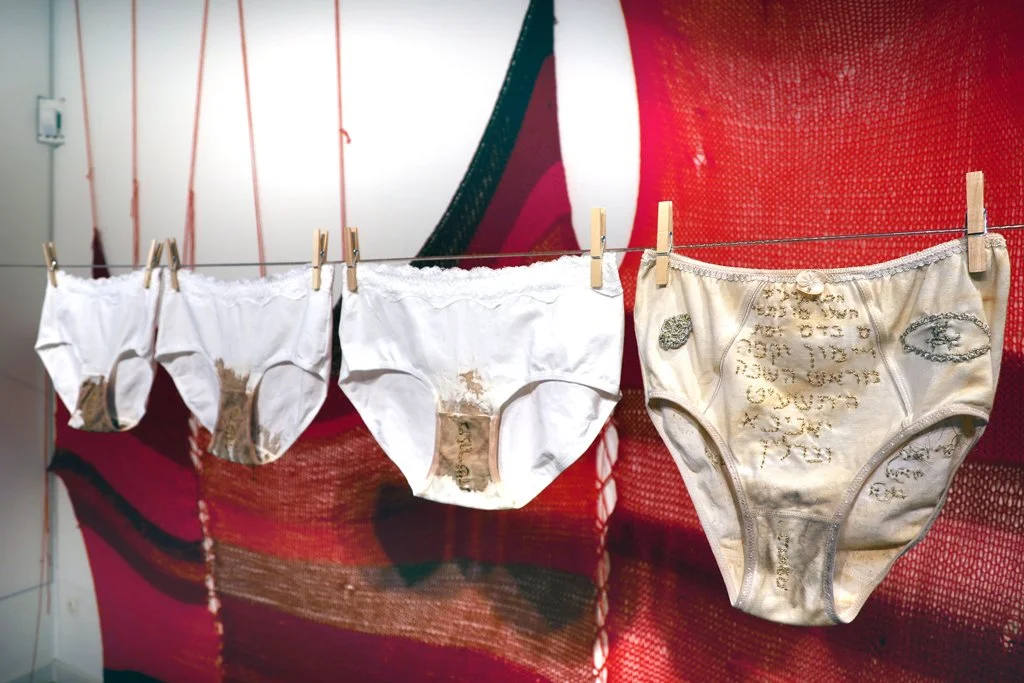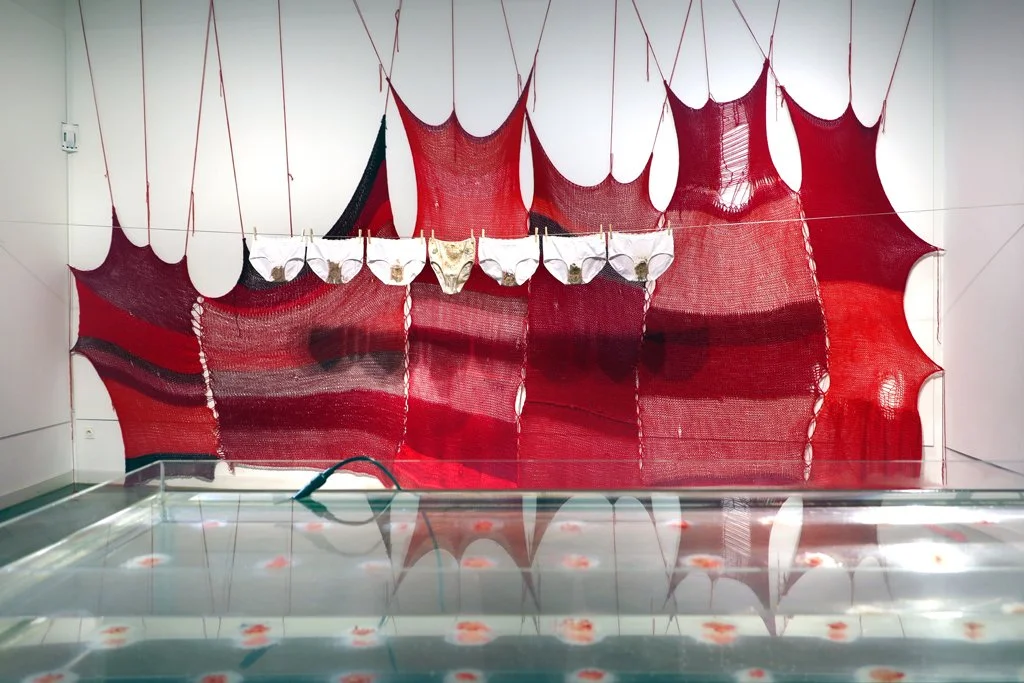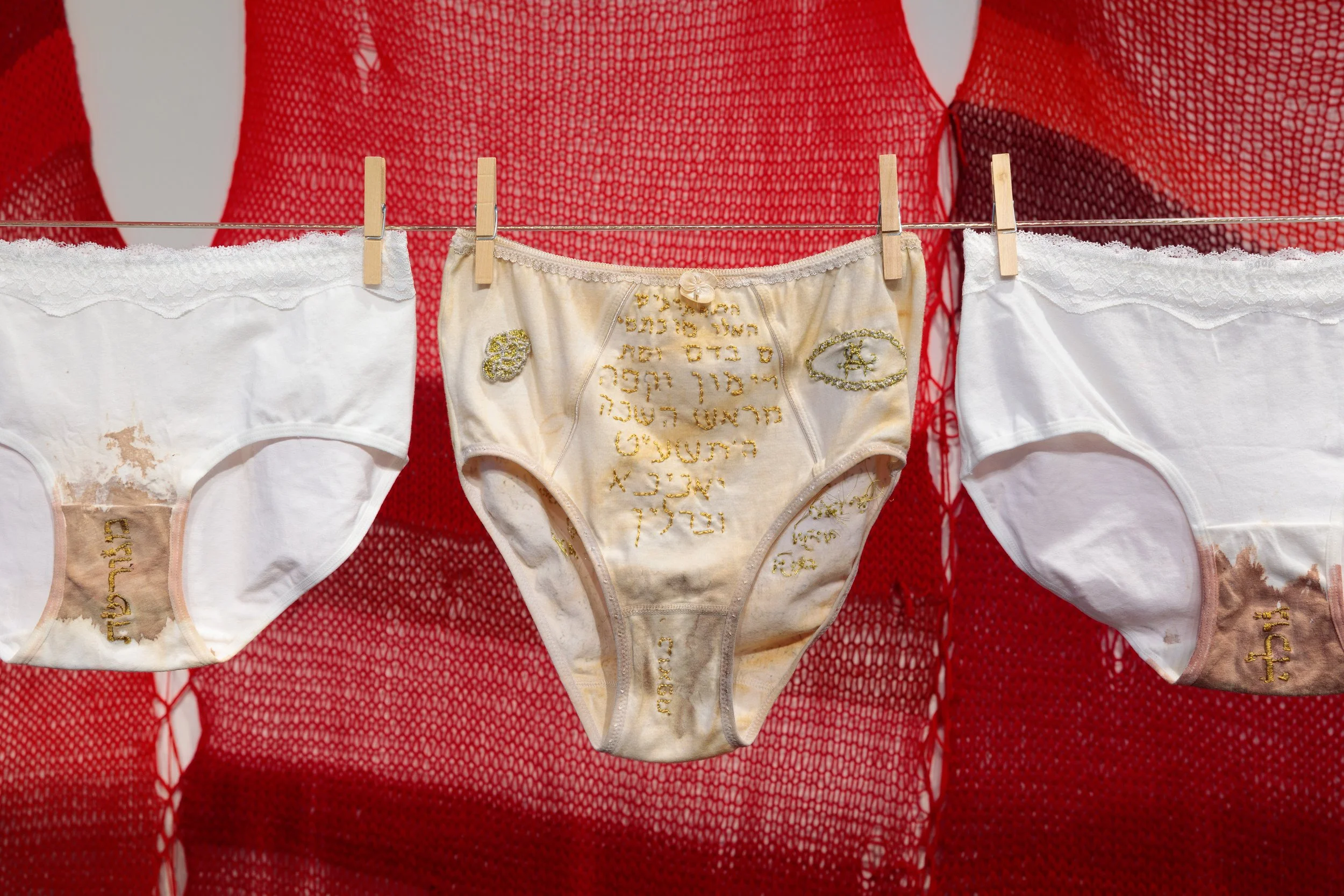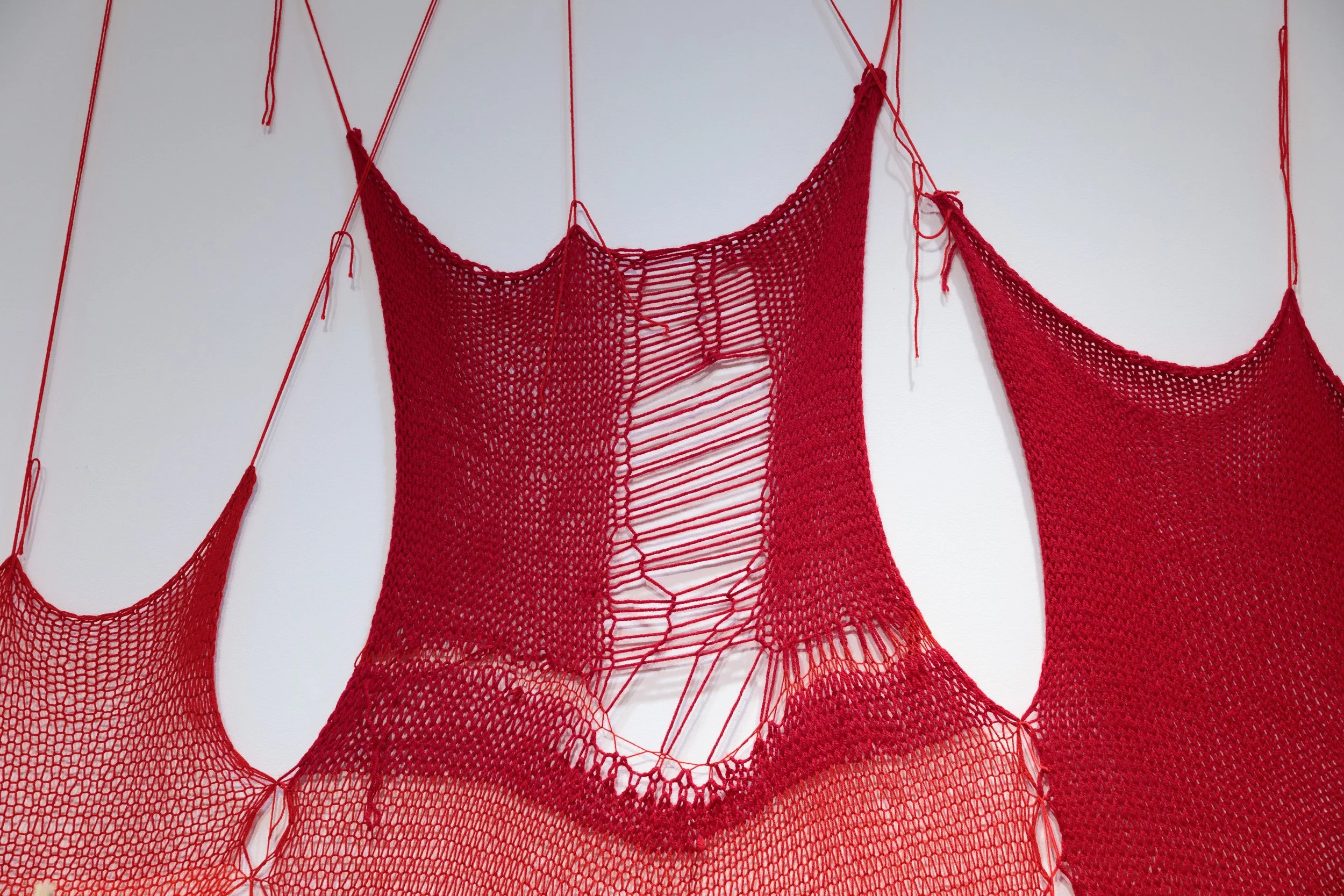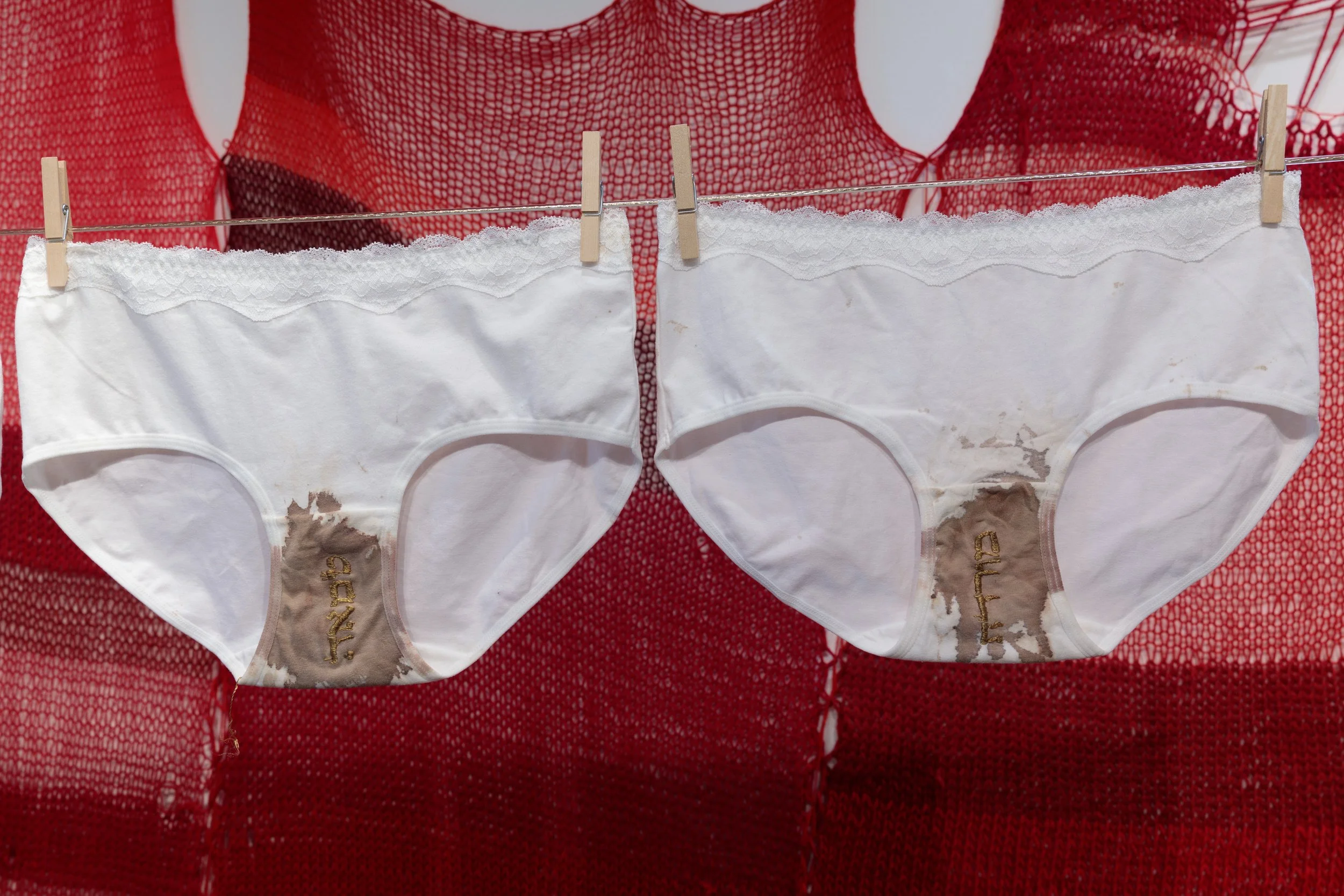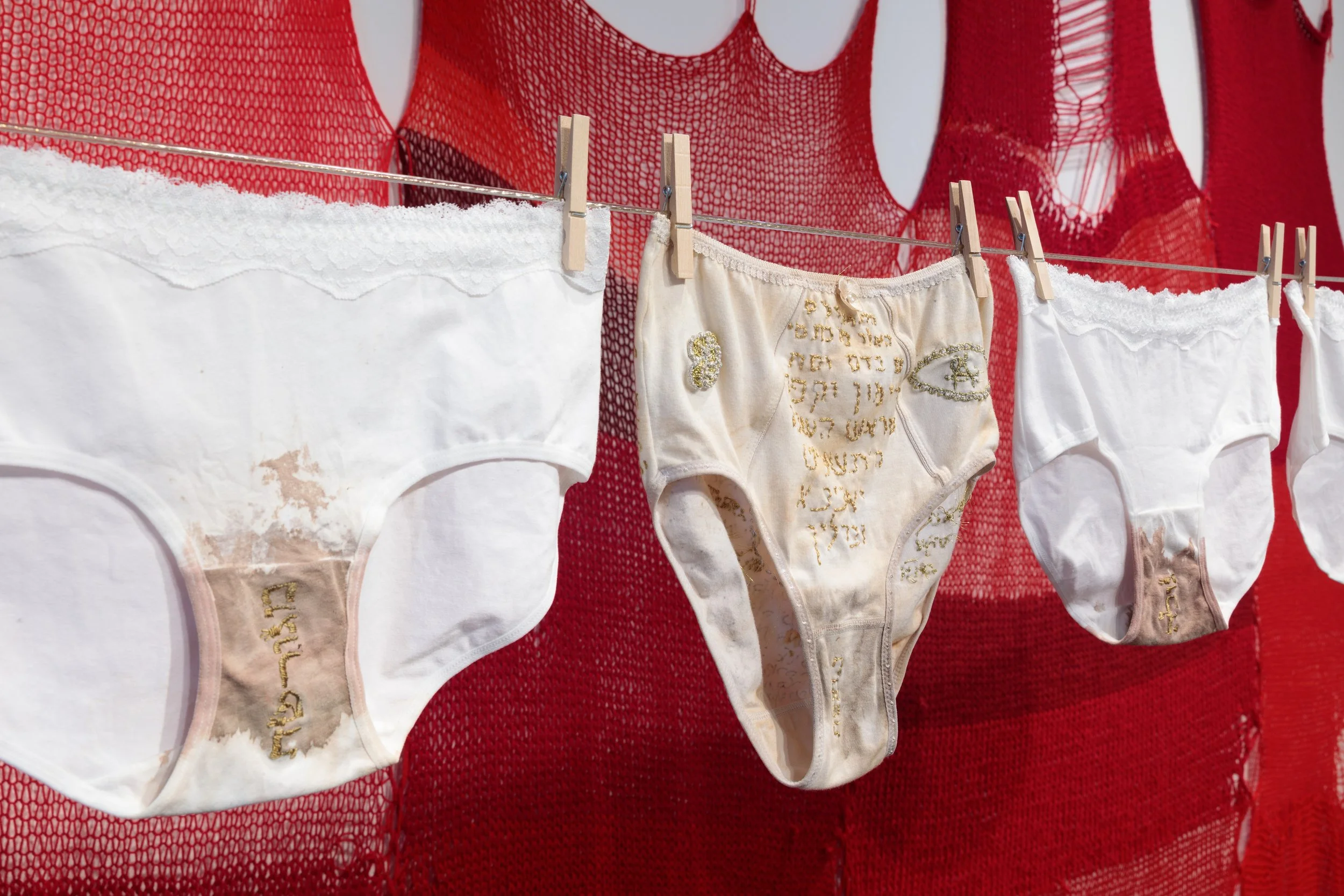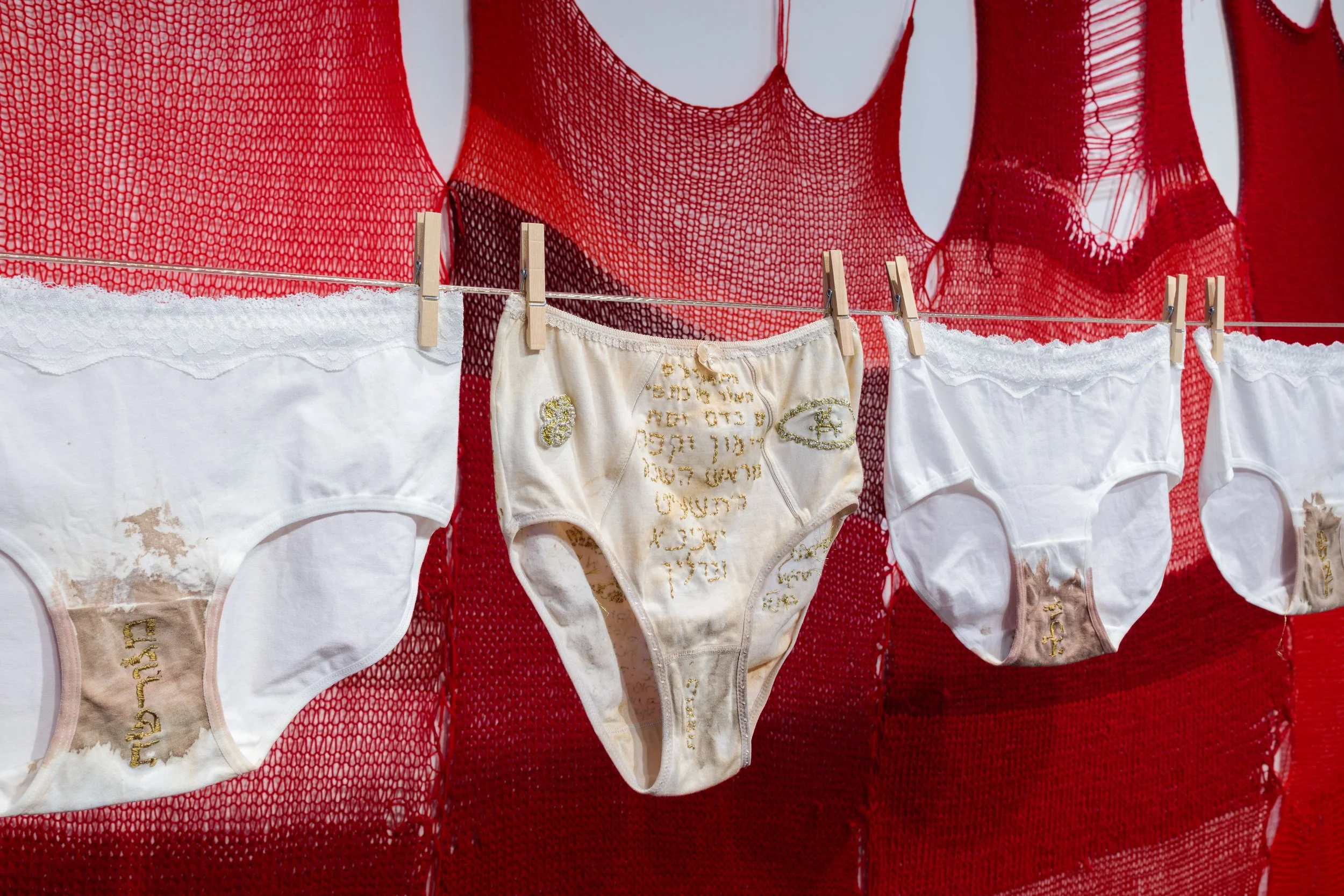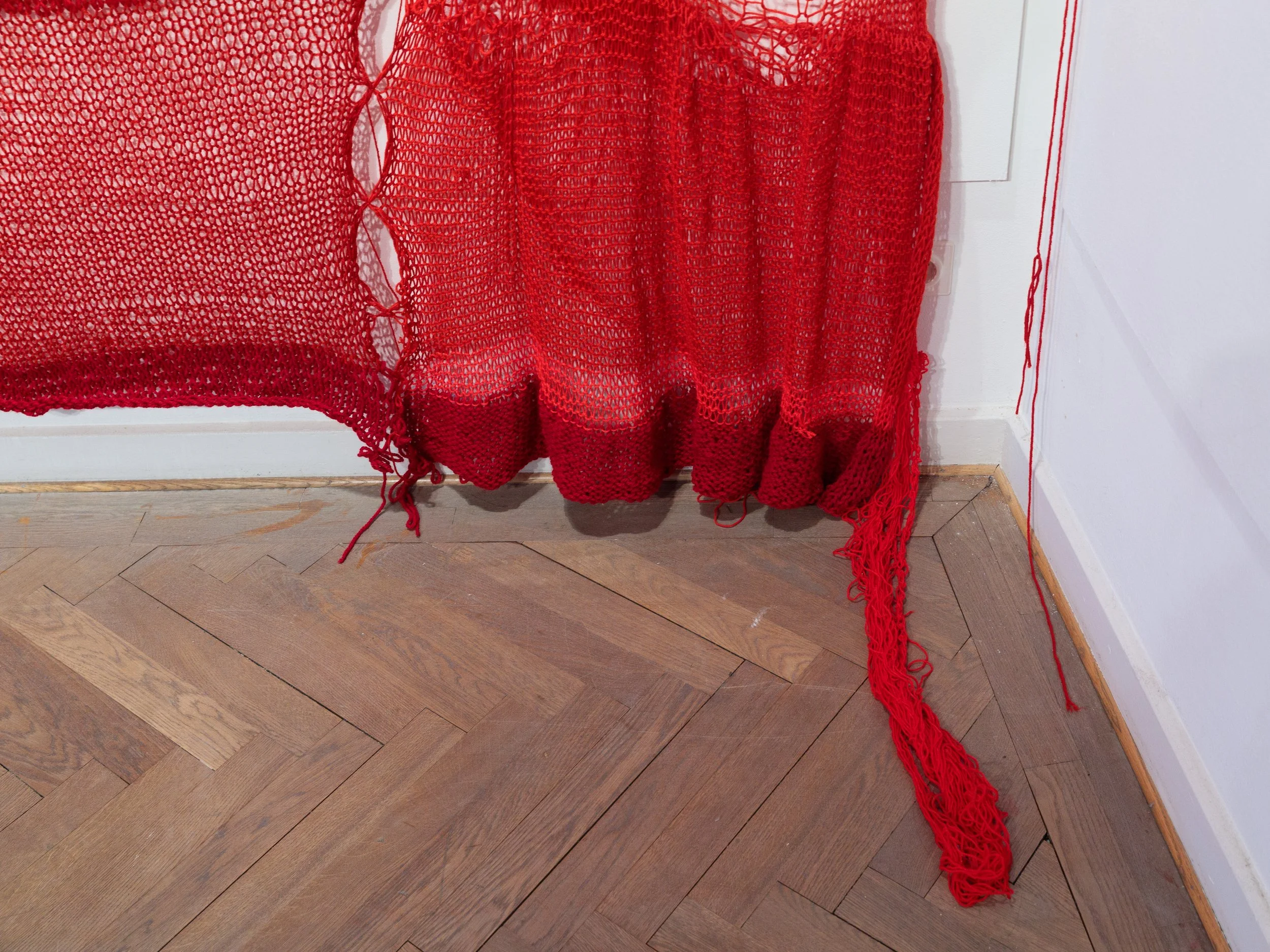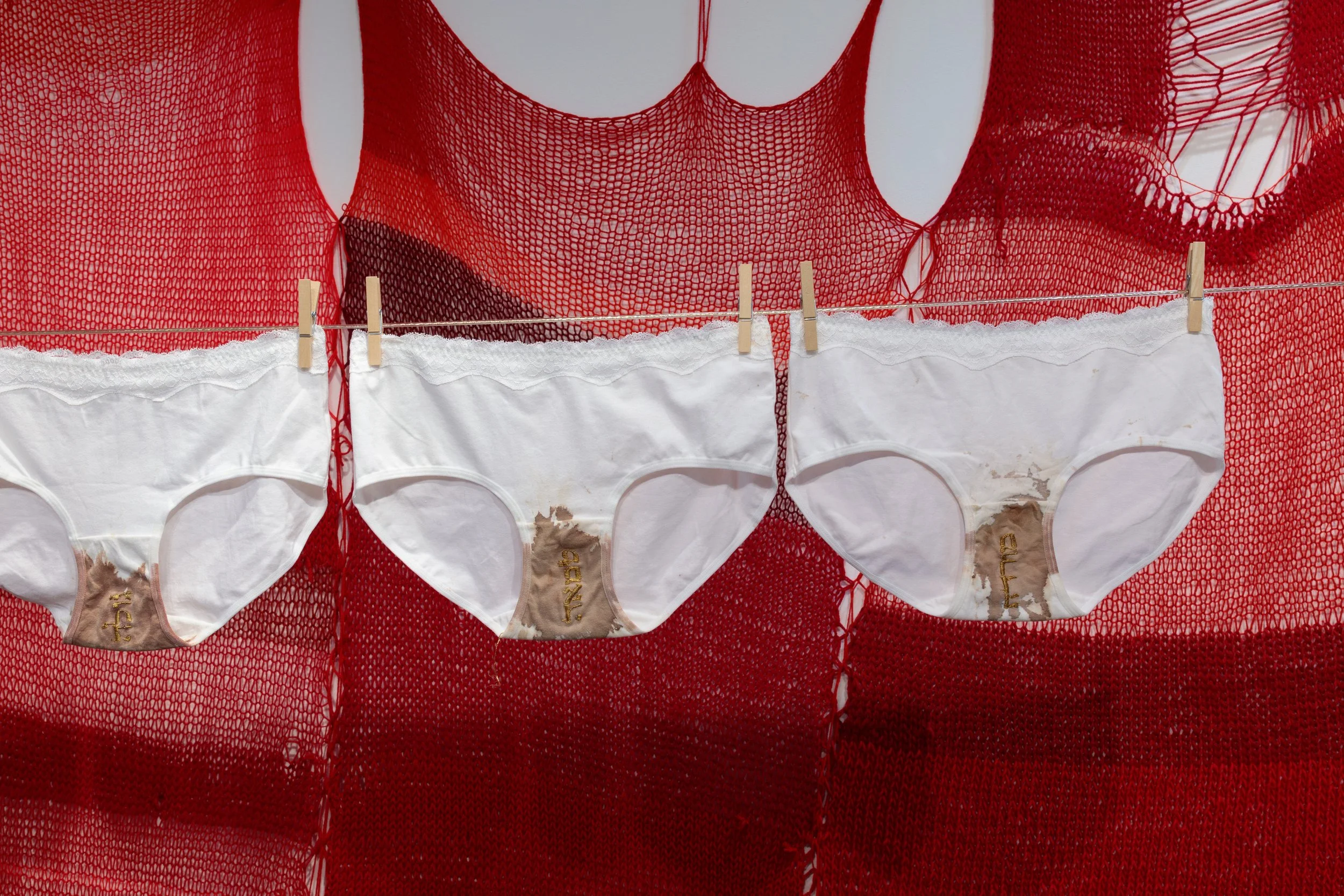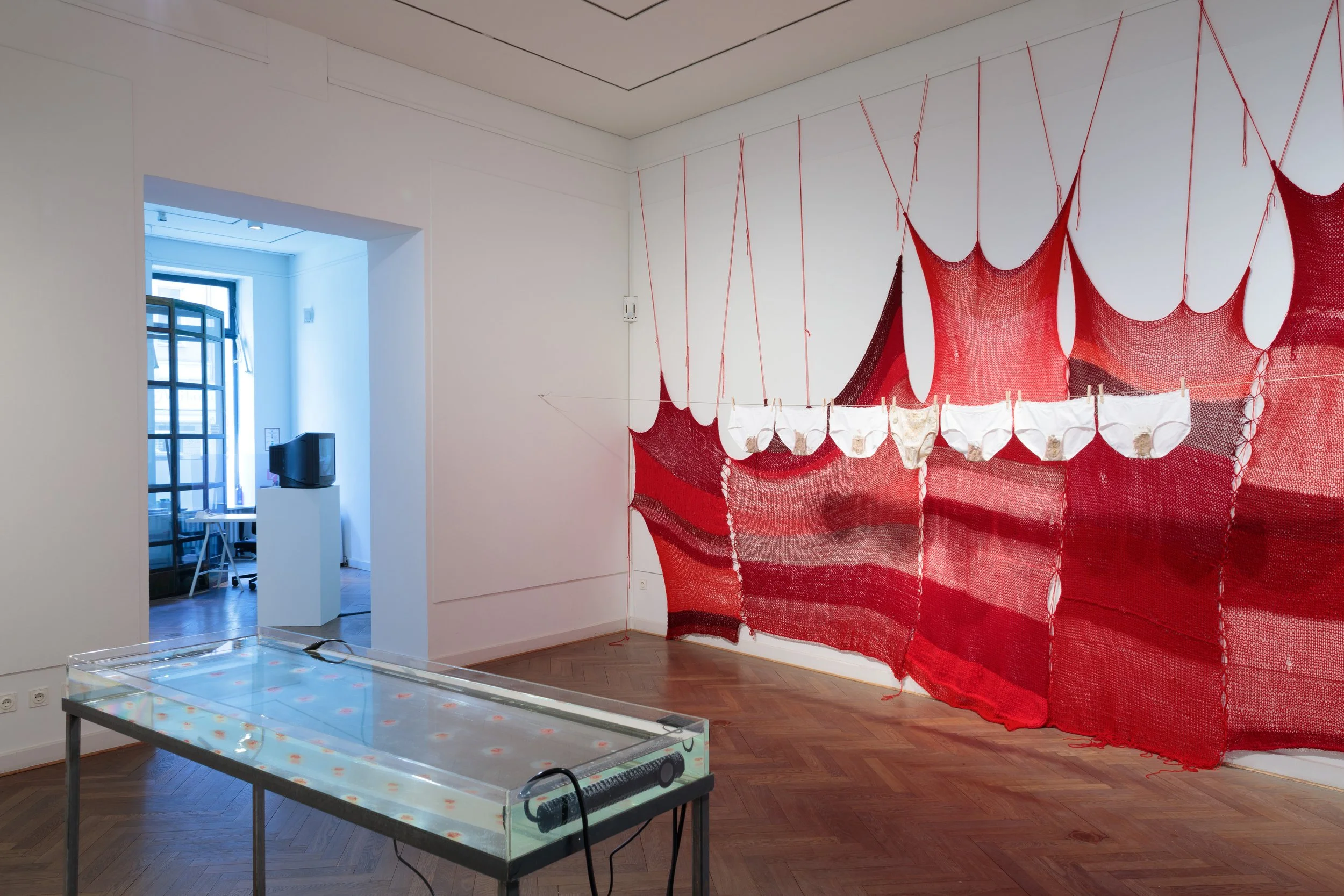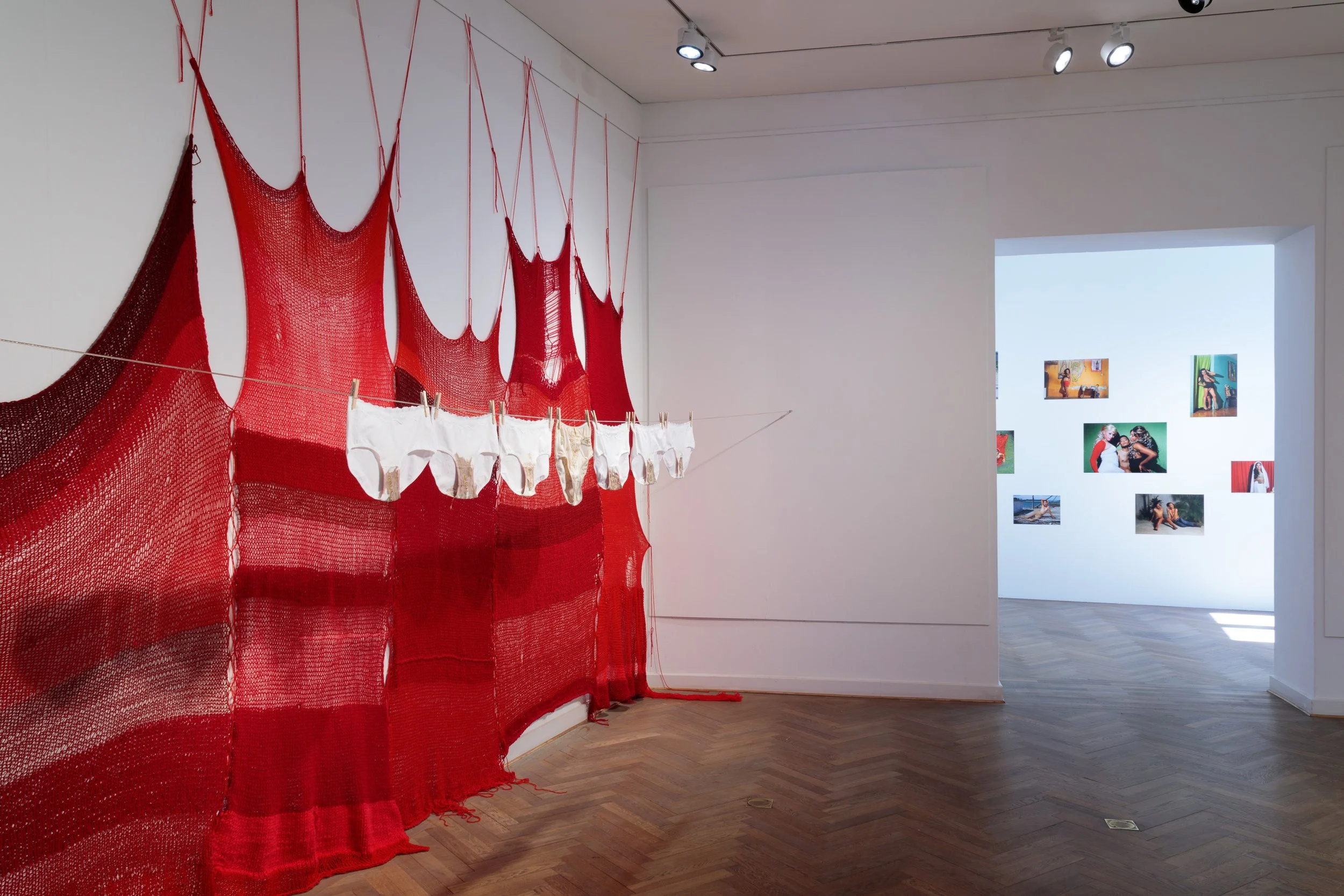KEDESHA קדשה
was displayed as part of the group exhibition: An Imagination of Bodily Autonomy* at Galerie im Saalbau, Berlin during 22.4-24.6.2023
Curated by Nina Marlene Kraus
With the participation of:
Fanny Gicquel
Adi Liraz
Zoë Claire Miller
Nelson Morales
Liz Rosenfeld
Aliza Shvarts
Agrina Vllasaliu
An Imagination of Bodily Autonomy is an exhibition project that looks at the way we treat our bodies. Seven artists explore the concept of bodily autonomy through different artistic media and invite visitors to imagine what it would be like if everyone could decide freely and without restrictions about their bodies.
KEDESHA קדשה
Yarn (mixed materials), approximately 250 × 600 cm; cotton underwear, menstrual blood, silk, approximately 35 × 300 cm
The Hebrew word Kedesha has a double meaning in its own nature. It means ‘prostitution’ while the very similar word Kedusha, which means ‘holiness’; those two meanings are not necessarily contradictory.
The only woman in the Bible who is being called Kedesha is Tamar, the biblical widow of Genesis. Tamar fought to have offspring from her husband's family, and she succeeded only by a tortuous route. After her husband’s death, she seduced her stepfather Judah using a disguise. Because she “covered her face”, Judah considered her a prostitute and did not recognize her – a fact that becomes a symbol of Tamar's duality in the later interpertations. Tamar and Judah's son turns out to be the ancestor of King David, from whose seed the Messiah will come.
Interdisciplinary artist and performer Adi Liraz takes the Kedesha duality into the material and visual realm, inviting the viewer to reflect on the agency of women's sexuality. The installation consisting out of a red yarn curtain and embroidered underwear tells precisely the story of Tamar – the story of taking ownership of one's body, one's powers, and achieving what has been taken from one.
The work is flooded with symbols – explicit and implicit – of femininity and female sexuality. The underwear, stained with menstrual blood, pomegranate and coffee, is designed as a Parochet, a curtain that covers the ark of the Torah and has a feminine symbolic value. On the underwear, Liraz embroidered words that mark women’s sexuality in a negative way – but the way she handles these words is an invitation to ponder.
טמאה T´ME´A ‘impure’
סוטה SOTA ‘pervert’
גולה GOLA ‘exiled’
מורדת MOREDET ‘rebellious’
מגורשת MEGORESHET ‘expelled / divorced’
מותרת MUTERET ‘permitted’
נואפת NO´EFET ‘adulteress’
Liraz offers a second look at the body and the way it produces history and knowledge. But not the body as it is, but the costume that covers it, the matter that comes from it and is left as a stain, and the words that describe it. As in the story of Tamar, Liraz offers us a tortuous path to unraveling the female body, sexuality and power, which is at the same time a special and different path to redemption
Text and consultation: Roni Tzoreff
Photographs by: Nihad Nino Pušija and Benjamin Renter

